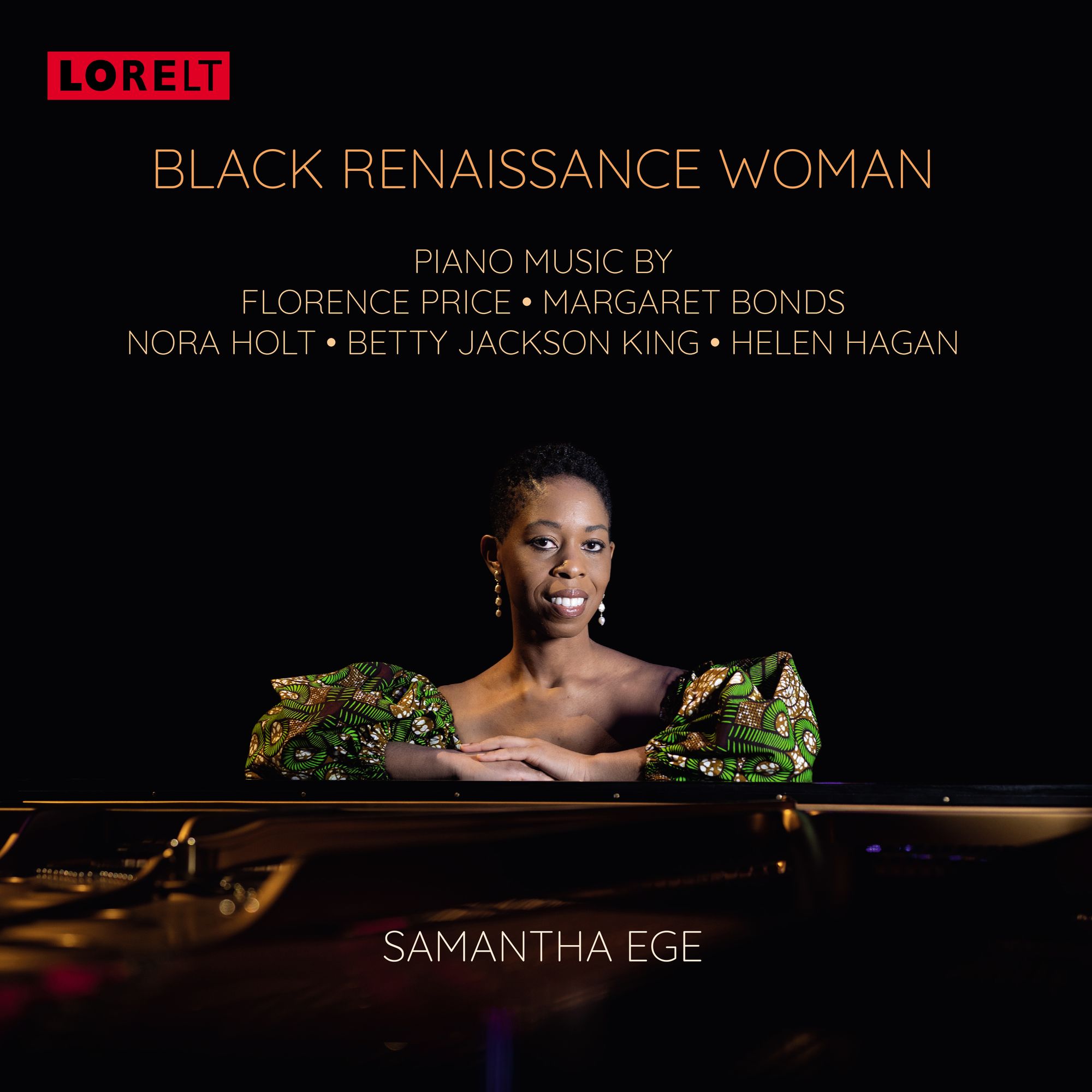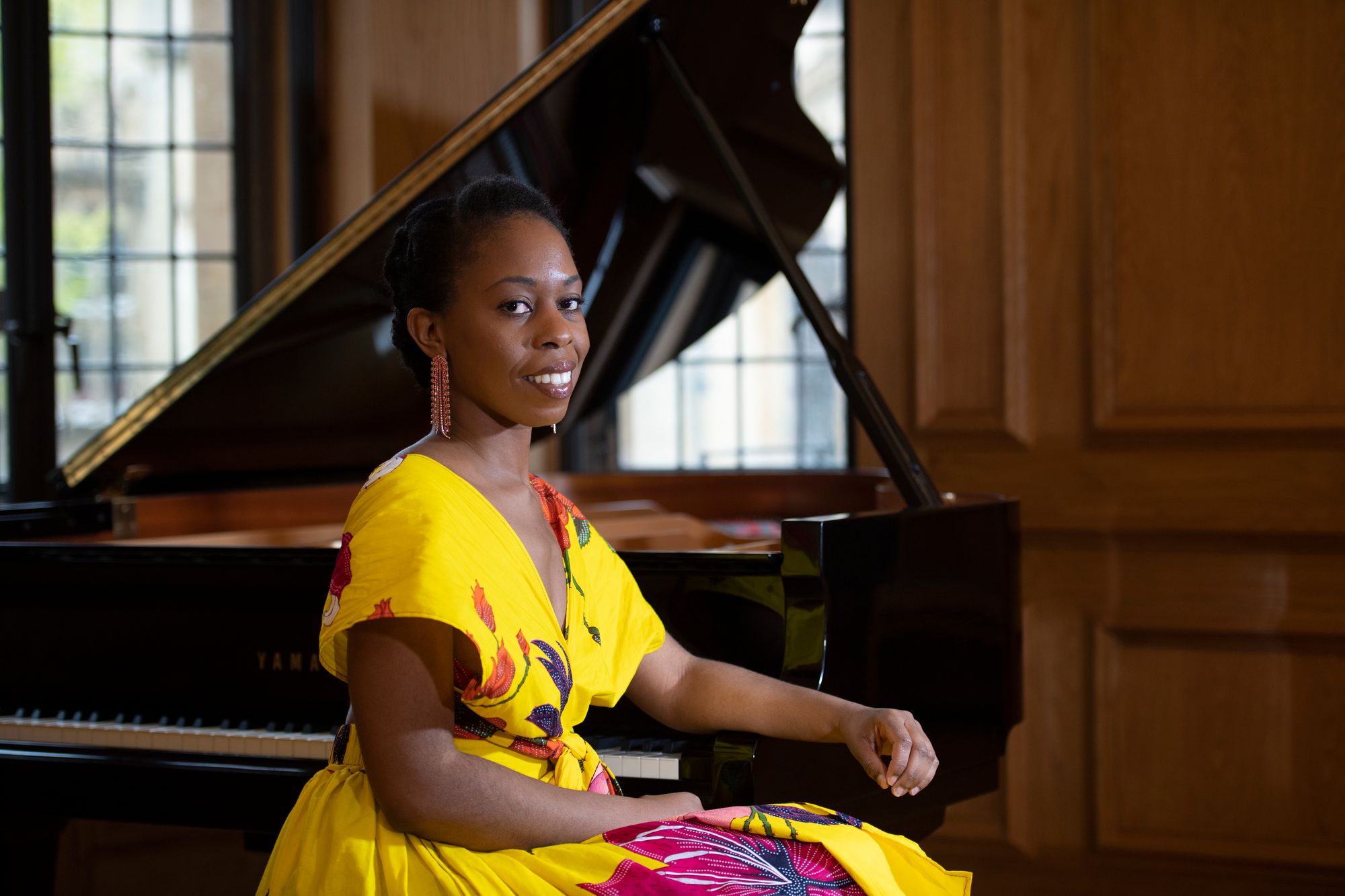Black Renaissance Woman
A fascinating exploration of the Black Chicago Renaissance

We have met Dr. Samantha Ege and her sterling work before on Classical Explorer: her disc of the four Fantasie nègres by Florence Price, and also via a concert review (Price and Kaprálová), Dr Ege's most recent release is entitled Black Renaissance Woman, and presents a first complete recording of Margaret Bonds' Spiritual Suite, a first recording of Helen Eugenia Hagan's Piano Concerto in C major (heard for two pianos, with John Paul Ekin), Nora Douglas Holt's Negro Dance, Op. 25/1, Betty Jackson King's Four Seasonal Sketches and the first recording of Florence Price's PIano Concerto in One Movement in a version for two pianos.
The five ladies featured here were all part of the Black Chicago Renaissance - and the premiere recording of the Hagen presents her only surviving work.
Released ahead of International Women's Day, this recording has already been awarded the American Musicological Society's presigious Noah Greenberg Award (click the link for a list of recipients over the years). Here is Dr Ege on the recording:
Margaret Bonds' Spiritual Suite (1930-40) is a piece that is usually excerpted from rather than heard in full ("Troubled Water," the final movement, seeming particularly popular). There are good reasons for this, as only that movement was published during teh composer's lifetime, and the whole Suite was only retored to its original state last year. But how powerful is Ege's performance of "The Bells," the suite's central panel, a miniature tone-poem; and how sweet in response is the melody of that concluding "Troubled Water" - a sophisticated piece, particularly harmonically. The choice of material comes from concert encores Bonds heard from legendary singers, including Marian Anderson.
Margaret Bonds (1913-1972) studied with Florence Price and attempted lessons with Nadia Boulanger, who told he she didn't need them!.
Part of the Harlem Renaissance as well as the Chicago Black renaissance,, Nora Doublas Holt (c.1885 - 1974) was born in Kansas City and died in Los Angeles. Negro Dance dates from 1921, is her only surviving piece for solo piano. It draws inspiration from African-American antebellum rural dance music, most notably the pattin’ juba, a dance that included striing the hands on teh knees and shoulders. .
Here is a performance by Ege (there are two on YouTube - in terms of duration, the Lorelt recording sits between the two):
The Piano Concerto in C minor by Helen Eugenia Hagan (1891 – 1964) receives a grand, powerful performance from Ege. Hagan was a pianist and a teacher who was born in Portsmouth, New Hampshire, of African descent. At Yale, Hagan studied with Stanley Knight, graduating in 1912 - she played this very concerto at Yale in May of that year. This is, then, the work of a precisious talent, and indeed she received a scholarship to study with d'Indy in Paris, graduating from the Schola Cantorum in 1914, after which she returned to the US.
Hagan taught at the Mendelssohn Conservatory of Music in Chicago; in the 1930s she served as dean of music at Bishop College in Marshall. On the present evidence, the loss of basically the entire corpus of her music is a tough blow. it is broadly structured and powerful - Ege's unflagging enthusiasm is never in doubt, and she is joined here by John Paul Ekin, who seems every inch her equal. Grand and Romantic, the gestural music includes vast contrasts, beautifully done. here.

A sequence of four pictorial movements separates this from the other concerto - Betty Jackson King's Four Seasonal Sketches (1955). To each movement, a season: a feuilleton for Spring (marked "Intermezzo"), an "Interlude" for Summer, its melody evoking Negro Spiritual before an energetic two-part "Dance" for Autumn and the final "Winter Holiday". Here's a video of a performance by Ege:
Finally, the Florence Price Piano Concerto in One Movement. We met this piece at last year's Proms when it was performed by Janeba Kanneh-Mason (my review). . It issplit into three tracks here - I remember at the Proms performance there was inter-movement applause. The piece is beautifully construucted,a s one might expect from Price, known to be a fine symphonist. The Concerto was completed in 1934, and brings Classical form together with Negro Spiritual and, in the finale, the Juba dance. The central Adagio is noth heartfelt and stunningly, darkly beautiful. Incidentally, this post was written o March 8, the date of Ege's UK premiere performance (with Dr Nicole Panizza) in a lecture-rmecital in Oxford's Holywell Music Room.
A bit of discographical research shows that Bonds' and Price's songs might also be worth of investigation (Price's intriguingly titled "Song to the Dark Virgin promises much mystery! - there is a recording, but on a small label and released in 2000, so maybe a touch difficult to trace now). But Thomas Hampson recorded, with pianist Kuang-Hao Huang, songs by Price and Bonds in his 2019 Cedille disc, Songs from Chicago.
A fine recording for Ege's new disc from the University of Surrey, Guildford seals the deal.
There are further performances and concerts in Ege's schedule going forwards: after the March 8 UK Premiere of the Price in its two-piano version, Samantha Ege plays works from this disc with Dr Nicole Panizza on Monday. March 14 at Turner Sims, Southampton and on Wednesday, March 16 at Coventry University. Subsequently, concerts are transferred to the USA for performances at Mills College, Oakland (Sunday, April 3) and Folly Theater, Kansas City (Sunday, May 15). Ege will also perform at the Oxford Piano Festival (Monday, August 1) giving a concert of music by Kaprálová (Dubnová Prelude, Op. 13), Betty Jackson King, Margaret Bonds and Florence Price.
